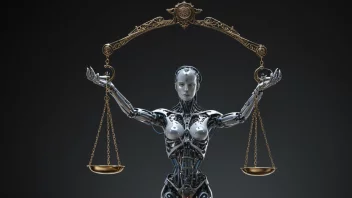The rapid integration of artificial intelligence (AI) into various sectors has raised significant ethical considerations regarding human-machine collaboration. As AI technologies advance, understanding the ethical implications becomes crucial for ensuring a balanced coexistence between humans and machines.
One of the primary concerns is the autonomy of AI systems. With machines increasingly making decisions that affect human lives, it is essential to establish guidelines that ensure AI systems operate within ethical boundaries. This includes determining how much autonomy should be given to machines and under what circumstances. For instance, in the healthcare sector, AI may assist in diagnosing diseases, but the final decision should always involve a human expert to avoid potential mishaps.
Another critical aspect is accountability. As machines take on more responsibilities, determining who is accountable for their actions becomes complex. In cases where an AI system causes harm or makes a mistake, identifying whether the liability lies with the developers, users, or the machine itself is vital. Establishing clear accountability can help in addressing potential legal and ethical dilemmas.
Transparency in AI decision-making processes is also paramount. When humans collaborate with AI, understanding how decisions are made can build trust in the technology. For example, in financial sectors where AI algorithms predict market trends, stakeholders must have insights into how these conclusions are drawn to mitigate risks and ensure fairness.
Furthermore, the impact on employment due to AI integration cannot be overlooked. While AI can enhance productivity and efficiency, it may also lead to job displacement. Ethical considerations should focus on how to reskill and upskill the workforce to adapt to new roles created by AI, rather than allowing technology to replace human jobs without a plan for transition.
Finally, bias in AI systems poses a significant ethical challenge. AI algorithms are only as good as the data they are trained on. If the input data contains biases, the output will likely reflect those biases, leading to unfair treatment of certain groups. Ensuring fairness and eliminating bias in AI systems is an ongoing challenge that requires rigorous testing and diverse data sources.
In conclusion, as AI continues to evolve and integrate into our daily lives, addressing the ethical considerations of human-machine collaboration is imperative. By focusing on autonomy, accountability, transparency, employment impact, and bias, we can create a framework that promotes responsible and ethical AI use. This framework not only fosters trust in AI but also ensures that technology serves humanity rather than undermining it.






